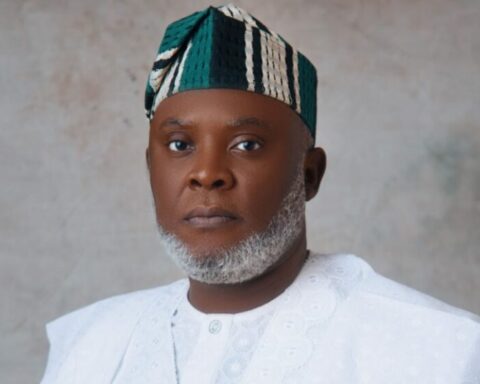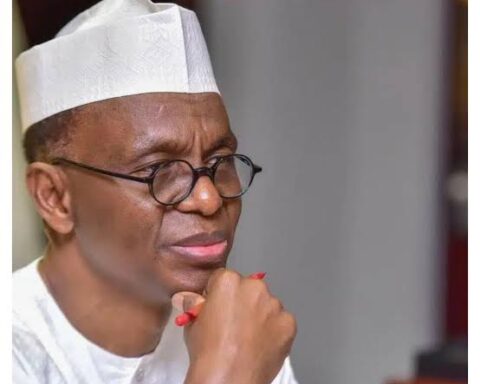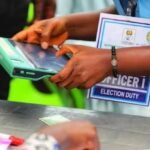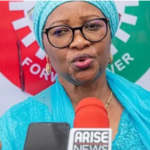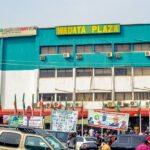In this incisive piece, ARINZE ODUAH interrogates Professor Ahmed Bako’s 50th UDU Inaugural Lecture on the topic: “The Igbo Factor in the History of Intergroup Relations and Commerce in Kano: Opportunities and Challenges Revisited’ delivered on Thursday, September 5, 2024,

Professor Ahmed Bako’s lecture offers a detailed exploration of the historical role played by the Igbo community in Kano. It seeks to provide a historical and economic account of the Igbo presence in Kano, focusing on their interactions with the local Hausa community, commercial dominance, and the challenges they faced over time, particularly in the immediate pre-independence era, and during and after the 1967-1970 Biafra – Nigeria War.
The prefatory remark on page 4 sums up the core thesis: “But before this time, I have heard a lot of frightening stories about Igbo as wicked people who killed Sardauna.”
In the concluding remarks, he validates this assertion as follows: “One crucial point which cannot be overemphasized in the relations between the Igbo and the indigenes is that the Kano people since early colonial era have been perceiving the Igbo as a serious rival migrant group. This perception had been proved true when the Igbo residents greeted 15th January Military Coup and the May 1966 Unification Decree and the centralization of the federal Civil Service with loud cheers and jubilation as the Igbo victory over the Hausa.” It, therefore, appears that this lecture reinforces existing prejudices by clothing them in academic garb.
I shall explore these recurring toxic narratives and conspiracy theories by interrogating some of the ‘facts’ adduced to justify them. In my remarks, I will briefly examine the theoretical framework employed, examine some of the ‘facts’ excerpted from the lecture for accuracy and consistency, explore the study’s periodization and historiography, and comment on critical missed opportunities.
Theoretical Framework
A key shortcoming in Professor Bako’s work is the absence of an articulated theoretical framework. While the document provides a wealth of historical data, it does not apply any specific theoretical lens to interrogate the broader implications of intergroup relations. For example, the analysis could benefit from frameworks such as ‘contact theory’, ‘social identity theory, class analysis (from a Marxian perspective), or economic migration models to provide a more structured interrogation of the social and economic interactions between the Igbo and Hausa communities. In the absence of these, the lecturer could have offered a unique construct to stretch the boundaries of knowledge. This deficiency leaves the discussion largely descriptive rather than analytical, missing an opportunity to explain the dynamics of ethnic cooperation and competition in broader terms.
Fact-checking and Review of Selected Excerpts
Professor Bako includes some key historical details and quotes that warrant fact-checking. For example, he claims that the Igbo represented 45% of the public sector workforce in the 1960s, dominating various industries such as railways and telecommunications (p. 27). While this statistic is plausible given the educational and economic dominance of the Igbo in certain sectors at the time, it is important to verify this claim using external sources, as such figures can often be misrepresented in oral or anecdotal histories. Additionally, the work extensively quotes archival sources and historical documents, but these are not always consistently cited, raising concerns about the verifiability of the information. The lack of uniform referencing standards, particularly for primary sources such as colonial records, weakens the reliability of some of the claims.
I will now explore some generalized assertions without nuance. For instance, the claim that: “What accelerated the massive Igbo migration to Kano and other northern cities was the population density and shortage of land which was and are still the main features of Igbo land, especially Owerri and Onitsha, the Igbo heartland.” This assertion is hinged on limited comparative colonial-era data on population density across Nigeria. However, it ignores the geographical diversity of Igbo land where there are large expanses of arable land in many parts, especially in Anambra West and North, Enugu State (which describes itself as ‘The Green Jewel’), and Ebonyi State. While Abia and Imo State are marginal less endowed in arable land, the pressure on the land is a tertiary reason for migration.
Elsewhere in the study a different ‘reason’ for the migration of the Igbo to Kano is offered as follows: “Kano and Kaduna were the most attractive areas throughout the colonial era because of job opportunities, which were not available in Igbo land. More jobs existed in the north because in the programmes of colonial developments, Igbo land had either been neglected or accorded bottom priority.” So, two independent reasons for Igbo migration are advanced here with no connecting threads of cause, effect, or reinforcement.
Again, the lecturer asserts: “The Igbo embraced Western education with great enthusiasm and determination…Indeed, the saying that ‘knowledge is power’ captured the imagination of the Igbo. They reasoned that the British dominated Nigeria not because of their numerical strength but due to their superior knowledge. The quest to Western education, therefore, became a matter of life and death for the Igbo.” Adding to this extraordinary conclusion without proof or evidence, he wrote: “The Igbo in actual fact from the 1950s started sending their sons and daughters to Europe and America for higher education; all with the hope of eventual domination of the country; not necessarily for developing it for the benefit of the nation.”
He gave the examples of Dr. Nnamdi Azikiwe, Kingsley Mbadiwe, Dr. Nwafor Orizu, Mazi Mbonu Ojike and General Odumegwu Ojukwu, as prominent Igbos enrolled in this conspiracy of domination through education. What are the facts? Contrary to this absurd assertion, the trio of US-educated Nigerian nationalists comprising Nwafor Orizu, Kingsley Mbadiwe, and Mazi Mbonu Ojike embarked on an active recruitment campaign across the country to encourage Nigerian students to apply for places in US universities and to guide them through the process of securing scholarships to ease the financial burden.
Nigerians of diverse ethnicities seized this opportunity to pursue their undergraduate and graduate studies in the US universities of Howard, Lincoln, Harvard, and others as detailed by one of the beneficiaries, Ambassador Olusola Sanu in his book ‘Audacity on the Bound: A Diplomatic Odyssey (2016), pages 27 – 42, and 501. Ambassador Sanu, like some other beneficiaries, was not Igbo and could not have been enrolled in a conspiracy to promote Igbo ‘domination.’
The lecturer saw a malign conspiracy for dominance in the change of name of the Igbo Union to the Igbo State Union, with the veiled suggestion that this was a precursor for dominance. The facts aremore nuanced. The Ibo Federal Union was formed in Kano in 1936 as a mutual welfare and socio-cultural association. In 1948, it changed its name to the Igbo State Union and became affiliated to the National Council of Nigeria and Cameroons (NCNC) as a strategic political alignment to extend its influence within the Nigerian political landscape.
This was no different from what other ethnic nationalities were doing to advance their interests, including the Ibibio State Union (which was also affiliated to the NCNC), the Egbe Omo Oduduwa, the Jam’iyyar Mutanen Arewa, and similar ethnic organizations formed by the Ibibios, Ijaws, Tivs, the Yoruba and other groups that played crucial roles in uniting their communities and advocating for their social, cultural, and political interests.
These organizations evolved from cultural welfare bodies into political forces, reflecting the changing political landscape in colonial and post-colonial Nigeria. Their transformations mirrored the aspirations of their members for greater representation, cultural preservation, and educational advancement, all within the framework of an emerging Nigerian state. To single out the Igbo State Union as a vehicle for domination is to ignore these historical developments and the context in which they evolved. It is incontestable that ethnic and cultural unions across Nigeria sought to leverage political parties like the NCNC, the Action Group, the United Middle Belt Congress and the Northern People’s Congress for protection and representation amidst growing regionalism and political competition.
The assertion that the Igbo restricted entry to the Igbo Union Grammar School is not supported by evidence. For instance, Zubair Mahmoud Imam Galadanci, one of Kano’s foremost civil servants at State and Federal levels, noted in his biography ‘A Humble Beginning’ (2017, on page 50) that he attended the Igbo Union Grammar School from 1953 to 1956. He did not mention any discrimination regarding admission. On this matter, I expected an acknowledgement from the lecturer, no matter how grudgingly given, that building and running this privately funded school at that time from the contributions of the Igbo community, and open to all students, positively impacted the Kano community. So, it is misleading to assert that the school was “exclusively meant for the Igbo.”
Another conspiracy theory is that: “Having realized that they lost political power because of the civil war, they (the Igbo) decided to embark on the capture of economic power through commercial activities and innovation. Commercial centres of Igbo land such as Nnewi, Aba and Onitsha during this time became centres for the experimentation of industrial skills, fabricating spare parts among other things.” This ignores the fact that agriculture, commerce and industry have always been pillars of the Eastern Nigerian economy, including in the Igbo heartland. If anything, the argument goes in the opposite direction, that, due to the dearth of enabling federal government infrastructure, the pace of industrialisation in the East has slowed down resulting in the reduction of Nigeria’s non-oil export and the increase in our national import bill, all of which negatively impact the national economy.
A final controversial assertion is that “…in searching for economic power and dominance make the Igbo to be desperate and aggressive. Desperation is what makes them to not only be disliked by host communities in several of the areas of their dominance in Northern Nigeria but to push some young Igbo into criminal activities.” This ethnic profiling is unbecoming of an academic study. Elsewhere in the study, the success of Igbos in commerce in Kano is attributed to ‘ethnic solidarity’. The example given to justify this broad statement is that of “Hausa traders displaced by the Igbo who were ready to pay high rents.” Interestingly, the study ignores market forces and omits the identity of the property owner and beneficiary of the rents.
In summary, the writer asserts that the Igbo enjoyed outlier success in the commercial life of Kano because they are treacherous, desperate, aggressive, discriminatory, domineering, and conspiratorial. They hardly manifest any positive traits, therefore their relations with their Kanawa hosts are defined
Periodization and Historiography
Bako’s periodization focuses almost exclusively on the 20th century, effectively limiting the broader context in which Igbo-Hausa relations could be examined. The historical narrative begins with the early 1900s, neglecting pre-colonial interactions and potentially missing out on deeper cultural and economic linkages that predate British colonization. Perspectives of Kanawa living and doing business in the Igbo States and of Igbo and Kanawa joint enterprises could have enriched the discourse. For example, the lecturer could have explored cultural exchanges between Kannywood (the Hausa-language film industry with strong roots in Kano). and Nollywood, including the interesting aspects that surfaced in the critically acclaimed film Lionheart, produced by Genevieve Nnaji.
Alongside Nollywood notables like Pete Edochie, the movie featured Yakubu Mohammed, a well-known actor from Northern Nigeria who has gained prominence in Kannywood. He played the role of Hamza Maikano, a key character who works alongside Adaeze (Genevieve Nnaji) in the family business. Yakubu Mohammed’s involvement brought representation from Northern Nigeria, contributing to the film’s diverse portrayal of Nigerian cultures and suggesting sources of intergroup collaboration different from the staple of suspicion, political competition and conflict.
Additionally, while the work is rooted in archival and field research, it does not sufficiently engage with the broader historiography on migration, ethnicity, and intergroup relations in Nigeria. Insights from other scholars could have enriched the analysis by situating the Igbo-Hausa interactions within broader African and global migration patterns.
Missed Opportunities for Broader Insights
The work misses several opportunities to draw parallels between the Igbo experience in Kano and broader trends in inter-ethnic relations both within Nigeria and across Africa. For instance, a comparative analysis of Igbo settlement patterns in other northern Nigerian cities like Kaduna or Jos could have offered useful insights into regional variations in ethnic relations. Furthermore, extending the analysis beyond Nigeria to other African countries with similar migratory and commercial dynamics, such as Ghana or Kenya, would have strengthened the work’s relevance to the field of African studies. The document also could have explored more deeply how lessons from Kano might apply to contemporary issues of ethnic conflict and economic integration in Nigeria, especially considering current ethnic tensions in cities like Lagos and Abuja. The author touches on the challenges of post- Civil War reintegration but does not fully explore how such tensions can be are managed in modern-day Nigeria.
Additional Observations
One of the strengths of the work is its detailed documentation of the Igbo community’s economic strategies, particularly its dominance in the spare parts and textile trades. However, the document leans heavily on economic narratives without delving deeply into the social and political ramifications of this dominance. How did Igbo economic success shape their social standing in Kano? Were there institutionalized forms of discrimination or cooperation that developed over time? These questions remain largely unexplored. The focus on an imaginary Igbo conspiracy precluded the study from examining reciprocity in the relationship thereby limiting its richness and relevance.
Conclusion
In conclusion, Professor Bako’s lecture offers a comprehensive yet somewhat descriptive account of Igbo economic activity and intergroup relations in Kano. The lack of a theoretical framework and limited engagement with the wider historiography reduce its analytical depth, although some of the historical data presented is valuable. The work could be greatly enhanced by incorporating broader comparative insights and more rigorous fact-checking, as well as addressing missed opportunities for wider applications in understanding inter-ethnic relations in Nigeria and beyond.
ODUAH, a member of the Chartered Institute of Purchasing and Supply is a public affairs commentator and critic.

